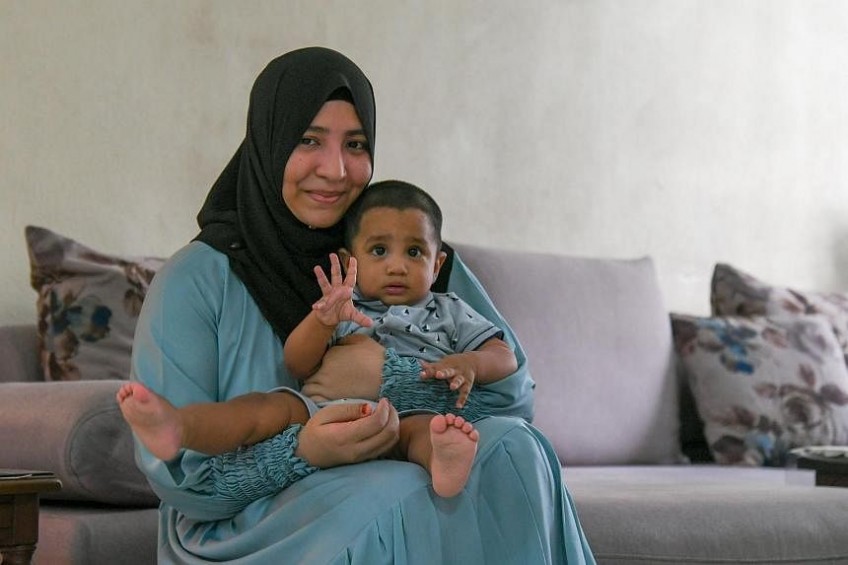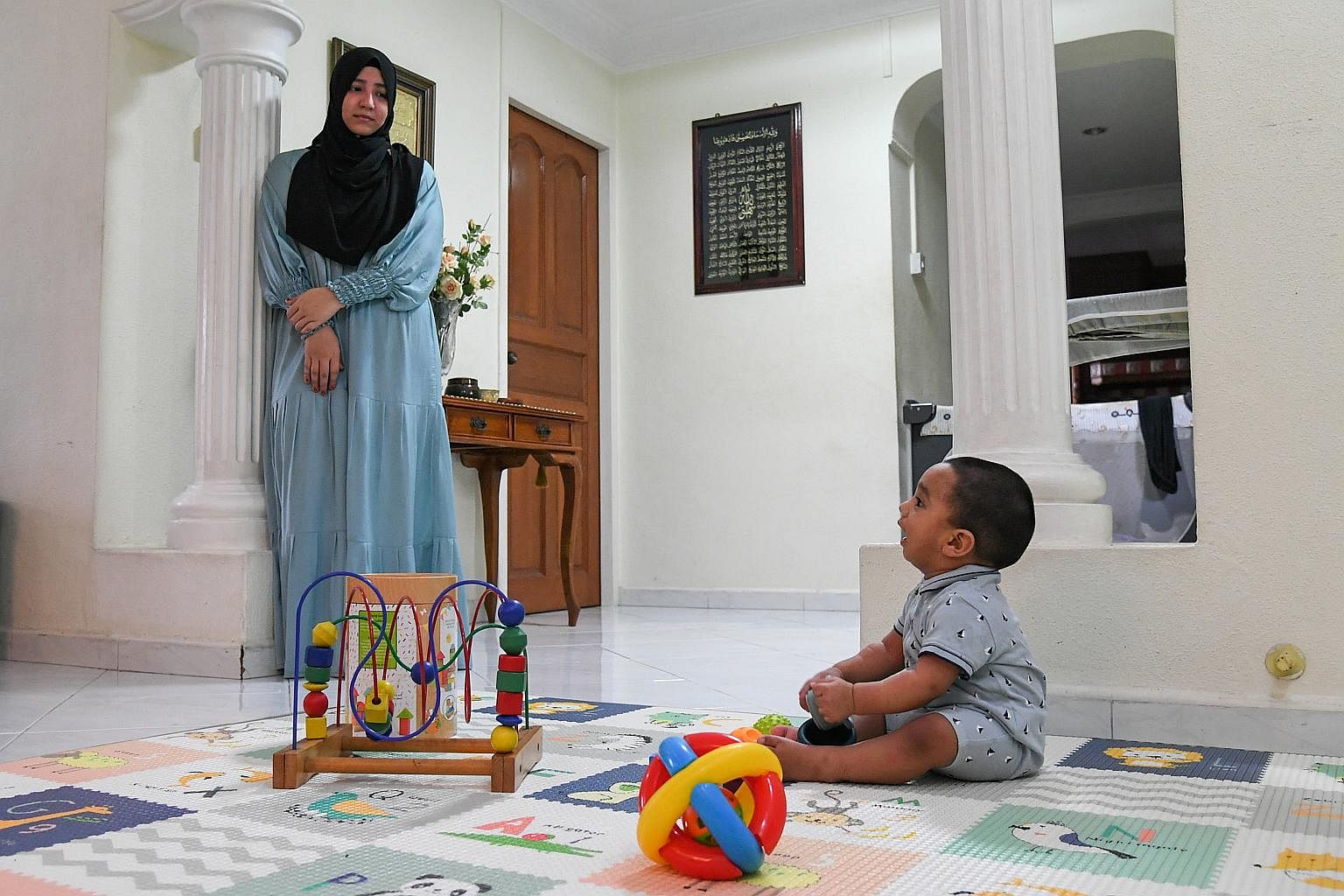Some Singaporeans face 'reopening anxiety' as they return to school or workplace


SINGAPORE - When polytechnic student Faith Hoon was minutes away from hosting a workshop for 30 secondary school students in May, her heart started pounding and she felt out of breath.
Since Covid-19 hit in 2020, she has not had many face-to-face interactions with her peers, and the easing of safety measures on April 26 made her nervous.
"I have trouble coping with the sudden transition of having no one in my space to having lots of people and strangers imposing on my personal space," the 18-year-old said.
"I wasn't comfortable with how crowded train stations and foodcourts had become... So when I had to face a room full of students, the anxiety came to a head."
Two psychologists and two psychiatrists The Sunday Times spoke to said that as many as 40 to 50 per cent of their patients with pre-existing mental health conditions have been seeking help for anxiety since the easing of Covid-19 rules.
Shine Children and Youth Services said many of its existing clients, mostly aged 17 to 25, have also reported feeling anxious after the reopening.
A spokesman for Shine said some clients had experienced anxiety symptoms from being in public and crowded areas before the pandemic, but had forgotten these experiences after working from home.
[[nid:493064]]
"As they need to participate in more in-person engagements, these symptoms have re-emerged especially with public places getting more crowded," he said.
"There are some heightened awareness and concerns over their social skills, likeability, ability to fit into a crowd... If they previously had struggles fitting in, they are being reminded about it again."
Their symptoms include heart palpitations, a sense of dread, feeling short of breath or panic attacks.
Although Ms Hoon had mild bouts of social anxiety before the pandemic, it never got to the point where she had panic attacks.
"Now, I'll sometimes blank out when I'm feeling unsafe. My heart rate goes higher and I'll feel out of breath. I'll just completely shut down. People will talk to me, but I won't hear them," she said.
Ms Hoon visited a general practitioner in August 2021, after a bad panic attack and received medication for anxiety.
When she had a panic attack before the workshop in May, she went to a corner and took deep breaths to calm herself down.
"I felt so drained after the two-hour workshop, but it was not as bad as I thought it would be," she added.
Lab technician Yasmin Abdullah, 28, also felt anxious about going back to the office in January this year, having given birth to her son in June 2021.
"If I was in a crowded place, I'd be so scared of catching Covid-19 and passing it to my baby. I'd cycle through thoughts like 'How bad would my symptoms be?' and 'Could I take care of him?'," she said.

Clinical psychologist Annabelle Chow said much of the anxiety faced by her patients comes from a lack of control over their interactions with others.
Dr Chow said: "Working from home allowed people to avoid things that made them anxious such as office politics or interacting with superiors, so going back to the office can put them in situations that trigger feelings of anxiety."
Dr Brian Yeo, a consultant psychiatrist who has a clinic in Mount Elizabeth Medical Centre, said: "I recommend patients to go back to work gradually to make the transition back to office easier, but it's difficult for young adults who don't have as much power to negotiate working hours and structures."
[[nid:574142]]
Dr Adrian Wang, a psychiatrist who runs a practice at Gleneagles Medical Centre, said he has been writing letters to his patients' employers about letting them go back to the workplace gradually.
Anxiety also grips Ms Grace Chai, 19, who will be going to Scotland to begin her undergraduate studies in St. Andrew's University this August.
"I've been interacting only with a close circle of people since Covid-19 and still feel anxious at times. I can't imagine socialising with new people in a different country," she said.
The National Care Hotline, which was set up in April 2020 to offer psychological first aid and emotional support, had received more than 50,000 calls as at August 2021.
A local study of 1,058 participants by the Institute of Mental Health amid the pandemic in 2020 found that 9.4 per cent had met the criteria for clinical anxiety and 8.7 per cent for clinical depression.
Other countries have also reported people feeling anxious over transitioning to a post-Covid-19 world.
In the United States, the American Psychological Association said in May 2021 that around half of the people polled for its Stress In America survey felt uneasy about having to readjust to face-to-face interactions post-pandemic.
In the United Kingdom, 36 per cent of respondents in an Anxiety UK survey in March 2021 were "quite happy to stay at home". Some 37 per cent were looking forward to returning to normal life and the remaining 27 per cent had no strong feelings either way.
The Shine spokesman advised people to seek help for their mental health once it starts to disrupt their ability to do things in their daily life and persistently affects their mood, appetite and sleep patterns.
This article was first published in The Straits Times. Permission required for reproduction.